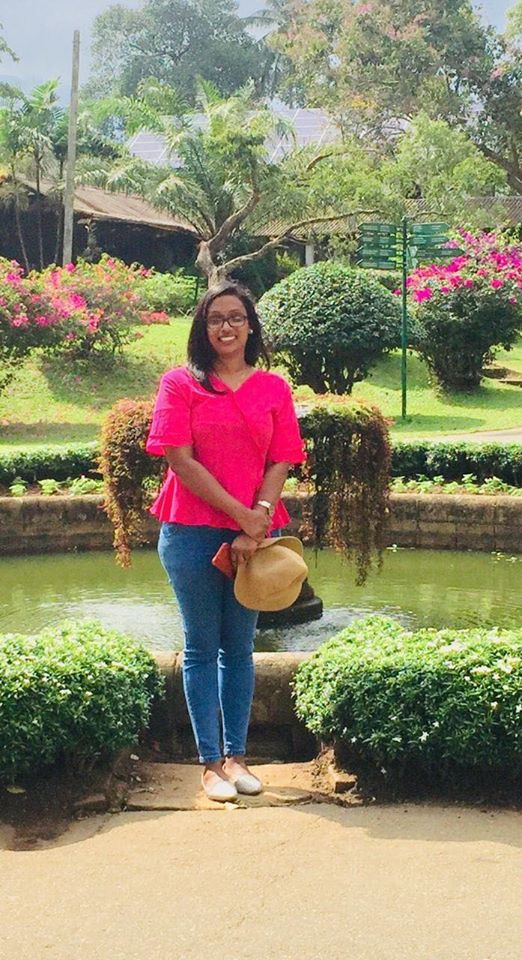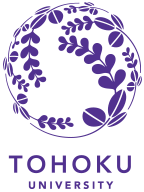Sewwandi Bandara

- e-mail:
Research topic
Causal inference in environmental epidemiology: Transmission dynamic modeling & determination of effective public health measures
Research abstract
Environmental epidemiological analyses are typically restricted to non-infectious diseases. However, emerging infectious diseases are associated with environmental and socio-economic factors highlighting the importance of considering infectious diseases in environmental epidemiology. Furthermore, understanding the causal relationship between relevant determinants and the infected number is essential to recognize the transmission patterns and implementing effective public health control measures. Therefore, this study aims the development of a causal inference-based method framework for the transmission dynamics of COVID-19 and the determination of relevant environmental and Water, Sanitation, and Hygiene (WASH) factors associated with COVID-19 transmission.
Academic backgrounds
2019 – 2021: Master of Environmental Science, Graduate School of Environmental Studies, Tohoku University, Japan
2015 – 2019: Bachelor of Science First Class Honours, Faculty of Science, University of Kelaniya, Sri Lanka
Research articles
- Quantitative evaluation of water, sanitation, and hygiene measures on COVID-19 pandemic peak reduction in the Philippines
Sewwandi Bandara, Clyde Dapat, Wakana Oishi, Emmanuel Kagning Tsinda, Mayuko Saito, Daisuke Sano
Science of the Total Environment, accepted. - Identification of environmental, socioeconomic, Water, Sanitation, and Hygiene (WaSH) factors associated with COVID-19 incidence in the Phillippines: A nationwide modelling study
Sewwandi Bandara, Clyde Dapat, Wakana Oishi, Emmanuel Kagning Tsinda, Lea Necitas G. Apostol, Naoko Hirayama, Mayuko Saito, Daisuke Sano
Science of the Total Environment, October 2024, 946, 174214. - Decay rate estimation of respiratory viruses in aerosols and on surfaces under different environmental conditions
Sewwandi Bandara, Wakana Oishi, Syun-suke Kadoya, Daisuke Sano
International Journal of Hygiene and Environmental Health, June 2023, 251, 114187. - Concentrations of trace metals in Siganus javus captured in Negombo estuary, Sri Lanka: Human health risk assessment through dietary exposure
Sewwandi Bandara, Asoka Pathiratne
Marine Pollution Bulletin, March 2023, 188, 114639. - COVID-19 case prediction via wastewater surveillance in a low prevalence urban community: A modeling approach
Yifan Zhu, Wakana Oishi, Chikako Maruo, Sewwandi Bandara, Mu Lin, Mayuko Saito, Masaaki Kitajima, Daisuke Sano
Journal of Water and Health, February 2022, 20(2), 459-470.
Conference presentations
- Determination of environmental, socio-economic, water, sanitation, and hygiene factors associated with infectious disease incidence
Sewwandi Bandara, Clyde Dapat, Wakana Oishi, Emmanuel Kagning Tsinda, Naoko Hirayama, Mayuko Saito, Daisuke Sano
Human and Environmental Security Symposium
Tohoku University (Jun. 6, 2024) - Estimation of causal relationships between water, sanitation, hygiene factors and COVID-19 case number in the Philippines
Sewwandi Bandara, Clyde Dapat, Wakana Oishi, Mayuko Saito, Daisuke Sano
Specialised Conference on Water and Wastewater Management with Special interest to Developing Countries
Perth, Australia
Dec. 3-8, 2023 - Identification of environmental, socio-economic, water, sanitation, and hygiene determinants associated with COVID-19 transmissions in the Philippines
Sewwandi Bandara, Clyde Dapat, Mayuko Saito, Wakana Oishi, Daisuke Sano
The Water and Environment Technology Conference 2023
Online
July 8-9, 2023 - Inferring the causal relationship of the factors associated with COVID-19 transmissions in the Philippines
Sewwandi Bandara, Clyde Dapat, Mayuko Saito, Wakana Oishi, Daisuke Sano
The 7th Symposium on Environmental Water Quality Engineering
Ookayama Campus, West Bldg, 9, Digital Multipurpose Hall, Tokyo Institute of Technology (Jul. 24, 2023) - Transmission dynamic modeling and determination of effective control measures for COVID-19 in indoor environments
P. R. C. Sewwandi Bandara, Syun-suke Kadoya, Daisuke Sano
The 4th GSES Forum
GSES main building, Tohoku University (Oct 28, 2022) - Transmission dynamics modeling in indoor environments using network analysis
P. R. C. Sewwandi Bandara, Syun-suke Kadoya, Daisuke Sano
The 7th Food and Environmental Virology Conference
Santiago de Compostela, Spain (May 16-19, 2022) - Inferring the effectiveness of non-pharmaceutical interventions against COVID-19 in an evacuation center
Sewwandi Bandara, Syun-suke Kadoya, Daisuke Sano
Water Environment and Technology Conference Online 2021(WET2021)
Aug. 11-12, 2021. - Heavy metal levels in Chanos chanos (Milk fish) from Negombo estuary, Sri Lanka and human health risk assessment associated with their consumption
Bandara, P. R. C. S. and Pathiratne, A.
4th International Research Symposium on Pure and Applied Sciences, Faculty of Science, University of Kelaniya
2019.
Awards
- The WET Excellent Presentation Award
The Water and Environment Technology Conference 2023, Japan Society on Water Environment
Jul. 9, 2023. - Professional Master for Sustainable Environment Award at the International Environmental Leadership Program (IELP-PMSE Award)
Graduate School of Environmental Studies, Tohoku University
Sep. 24, 2021. - Dean’s List
Faculty of Science, University of Kelaniya
Academic year: 2015-2016. - Dean’s List
Faculty of Science, University of Kelaniya
Academic year: 2014-2015. - Dean’s List
Faculty of Science, University of Kelaniya
Academic year: 2013-2014.
Members
Professor
Associate Professor
Assistant Professor
Post-Doc
Special Research Student
Ph.D.Students
- Yu-bing LI
- Sewwandi BANDARA
- Aken Puti WANGUYUN
- Katayoun AMIRFARD
- Mohammadreza VESALINASEH
- Yohei MIURA
- Luyao Wang
Master Students
- Marcus SANCHEZ
- Jarin TASNIM
- Lucas MARIJANOVIC
- Anju SAWADA
- Ren SUZUKI
- YiLei WANG
- Kanki WATANABE
- Riki MORIYASU
- Syoya TANAKA
- Tatsunoshin WAKINO
- Putri Shafa Kamila
